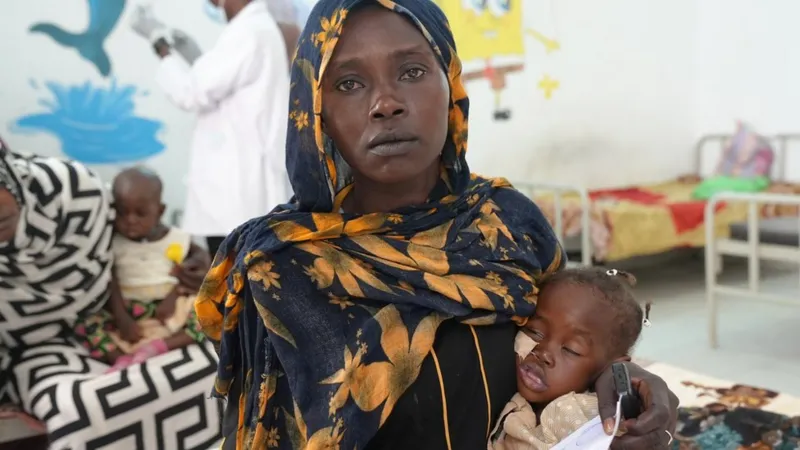Civilians caught up in Sudan’s civil war have given graphic accounts to the BBC of rape, ethnic violence and street executions. Our journalists have managed to make it to the front line of the fighting close to the capital, Khartoum.
Top UN officials have said the conflict has plunged the country into “one of the worst humanitarian nightmares in recent history” and could trigger the world’s largest hunger crisis.
There are also fears that in Darfur, in the west of the country, a repeat of what the US called genocide 20 years ago may be beginning to unfold.
As if out of nowhere, a huge blast shakes the road in Omdurman. People scream and run in all directions, shouting: “Go back, go back, there’ll be another one.” Thick smoke blankets everything.
Moments earlier, the battered street had been dotted with pedestrians picking up rice, bread and vegetables from the shops, which had only recently begun to re-open.
In mid-February, the Sudanese army retook the city – one of three along the River Nile that form Sudan’s wider capital, Khartoum.
Civilians have now started to return, but mortars, like the one that landed in the middle of this main street, still fall daily.
For international media, gaining access to cover the civil war that erupted last April has been difficult – but the BBC has managed to get to the front line.
Our team found the once-bustling heart of Omdurman transformed into a thinly inhabited wasteland.
The vicious power struggle between the country’s military and its former ally, the Rapid Support Forces (RSF) paramilitary group, has killed at least 14,000 people across the country – possibly many more.
For nearly a year, the army and the RSF have battled over Khartoum and the nearby cities.
The RSF has taken control of areas south of the capital, as well as large swathes of Darfur, which has been in turmoil for years with violence between its various African and Arab communities.
Women who escaped Darfur to neighbouring Chad have given the BBC accounts of being raped – sometimes multiple times – by militiamen. Men in the camps told us they had escaped street executions and abductions.
Embedded on the front line with the army in Omdurman, the BBC team’s movements were carefully controlled – we had a minder with us and were not allowed to film military activity.
The army fears information about its activities will be leaked.
Source: BBC
